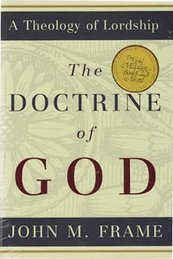On 22 May 2010 (Saturday), many Methodists from the three annual conferences (representing the three language- English, Chinese and Tamil) gathered at the Paya Lebar Methodist Church to worship and praise God for His 125 years of faithfulnes. The sermon on that day was "Jesus prays for us", and one of its main theme is the unity of the church.
Physically Together, Spiritually Separated?
Similar to many denominations in Singapore (such as the presbyterians, anglicans and lutherans), the Methodists do not have a centre location for worship. Instead, Methodists worshipped at various locations around the island. As the Rev. Dr Chong Chin Chung pointed out in the 125th anniversary dialogue (held on 21 May):
In order to have a testimony of unity and togetheress and to make optimal use of resources, members of an organisation must strive to work as one. This is all the more true of The Methodist Church in Singapore -- a connectional church.
I believe a connectional church is much more important than having a giant mega church in one location. Do we really need a giant mega church (a central gathering point) where thousands of Christians gather to worship God. Parking problem! Construction cost! Travelling time! Convenience? I think we go to Church for various reasons, but the main ones are to praise God and give thanks to Him. If we choose a church because it has a nice building and it is a hip to place to be in and seen, then something is obviously wrong with our spirituality.
Not that this prayer is wrong, but it certainly has some problem. In con trast, we seldom hear this type of prayer: Thank you God for blessing the churches in Singapore.
In genuine praise and celebration our attention is drawn to God, not ourselves; in fact, it is exactly this attentiveness to God that frees us from such enervating preoccupation with ourselves. (Paul J Waldell, Becoming Friends)
I think there are some things more important than having a big church that can sit a few thousand people. Spiritual togetherness is more important! Having a big church building doesn't mean anything. Of course, if there are both (Spiritual togetherness and a big church building), then it is truly God's blessing. If there is
big church building but no spiritual togetherness, we better start examining our spiritual conditions. We better start examining the quality of the sermon, fellowship, ... ... The pastor or minister should be the leader of a community of faith who is summoned to call that community to greater faithfulness in discipleship. He should not be a salesperson trying to market a product (blessing) to a congregation. But we sometimes hear pastor saying: If you tithe, God will bless you.
Though this may not be the exact words, but the essense is there. This prayer makes God look like a businessman who gives blessing in return for money. Of course, tithing is important, but we should not tithe, thinking that we would get blessing. We tithe because we are grateful for all God has done.
When worship becomes captive to consumerism, you need a God people will like and a message they are willing to buy. Instead of telling a congregation they must grow in conformity to Christ and see their lives as an ongoing conversion of heart, in consumerist Christianity it is the gospel that must conform to the needs, interests, and fancies of the congregation. (Paul J Waldell, Becoming Friends)
Sad to say, there are pastors who seem to be using this sort of convoluted theology (prosperity theology) to make Christians tithe. This is a disturbing truth. Some Christians/ pastors also base their evangelism on this sort of misleading theological understanding--- God is portrayed as the God of fortune! Rather than using money to 'lure' non-believers to become Christians, I think how we live our life is even more important. As William Lane Craig reminded us in the concluding chapter (titled "Ultimate Apologetic") of his book Reasonable faith, the ultimate apologetics is "Your life!"




No comments:
Post a Comment